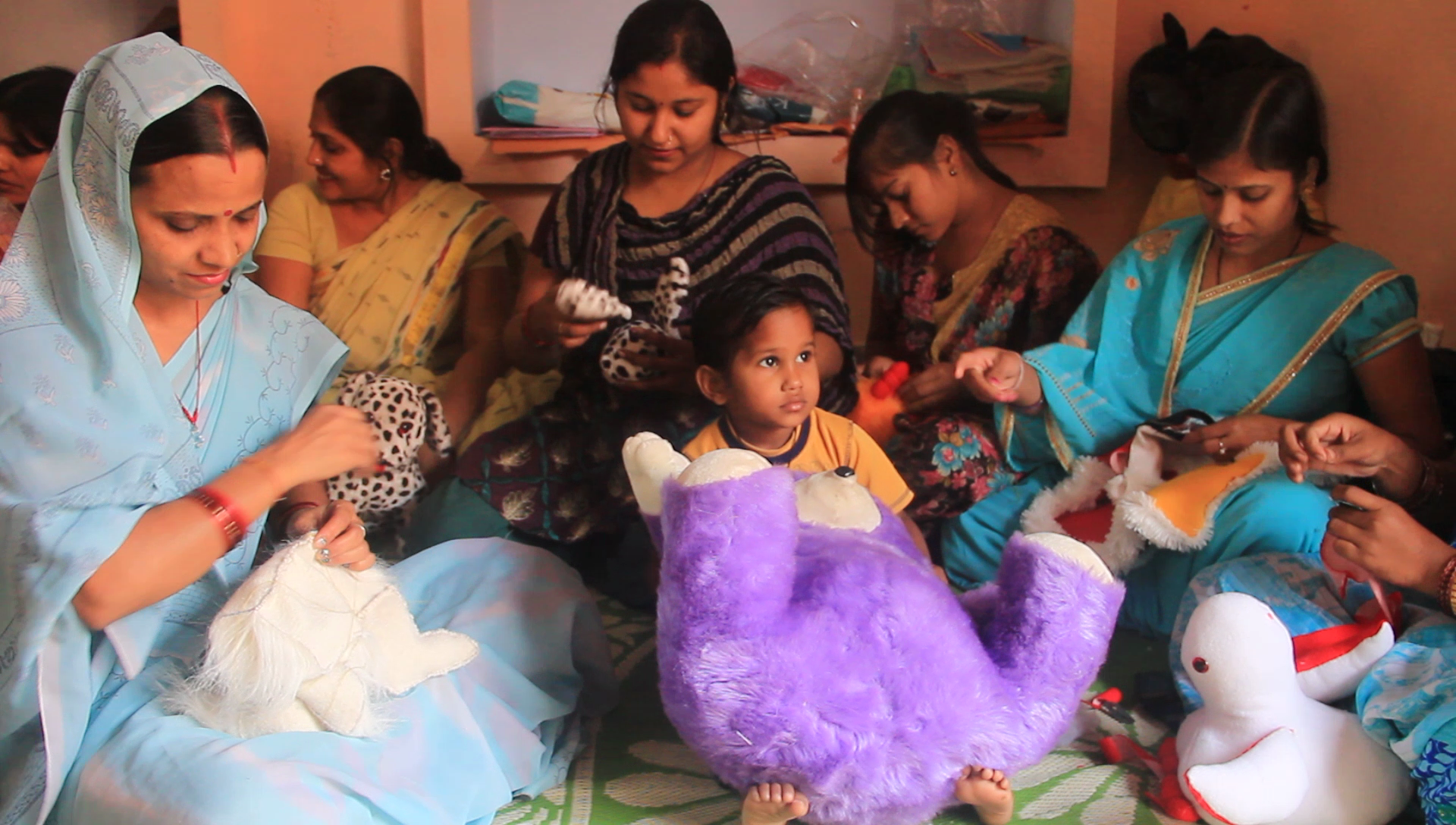|
Stakeholders’ Engagement in Livelihood Creation T ARA Livelihood Academy (TLA) has provided training and capacity building services to around 22000 youth and women in the Bundelkhand region of Central India helping them to earn su stainable
livelihoods. stainable
livelihoods.
TLA’s association with companies such as NTPC and GAIL has helped to expand its outreach to Greater Noida and Auraiya areas in Uttar Pradesh. These partnerships have impacted the lives of around 2000 men and women through training and enterprise support services. Under the Madhya Pradesh Government’s District Poverty Initiatives Project (DPIP), TLA has provided training to self-help group (SHG) women in stitching, tailoring and handloom production reaching out to around 3000 women in Tikamgarh, Panna and Shivpuri districts. With financial assistance from the National Bank for Agriculture and Rural Development (NABARD), TLA has helped create around 80 micro enterprises by giving vocational and enterprise training in artificial jewellery making and tailoring to SHG women in Jhansi and Shivpuri districts of Bundelkhand. TARA Livelihood Academy has also helped create 75 green jobs in renewable energy and agriculture sectors. Placement linked training in retail & ICT sectors has been provided to around 1200 young people. Skill development training in garment making, beauty and wellness, soft toys making and paper products making has been provided to around 3200 women and girls through TLA’s vocational and community training centres in Bundelkhand. We have observed that low levels of literacy and skills conspire to keep people in the poverty trap, preventing them from claiming their basic rights and embarking on new activities to earn their livelihoods. TARA Livelihood Academy believes in the ‘Rural Livelihoods Approach’ which places people at the centre of development. Programmes based on this approach help people build assets and develop their skills so that they can access new opportunities for income generation and employment. |
|
Success Story A post graduate in Urdu, 35 year old Pappi’s educational qualification wasn’t a solace as she was home bound doing household work. She hails from an economically backward family which suffices on the meagre income of her husband, who works as a clerk at a college. A few months ago, TARA initiated a programme called ‘Haryali Udyamita aur Sampannata’ to undertake GAIL’s Corporate Social Responsibility activities in Auraiya district in Uttar Pradesh. Seeing the training in vocational skills as an opportunity, Pappi enrolled herself for the ‘beauty culture and hair dressing course’. She underwent an intensive training for 15 days. On being motivated by the TARA team, she also decided to undertake the Master Trainers’ course. Now Pappi is officially trained as a Master Trainer and currently has four students under her supervision. She charges each student Rs. 250 per month as fee for a 2 months course. TARA’s intervention has given her a sense of hope to do something in life and become economically indepen-dent. |
|
Mobilisation is at the core of whatever TLA does in skill development and training. The mobilisation process starts with creating the ground connect- meeting the key stakeholders at the district level, village level and panchayat (village council) level. Information collected through surveys is then analysed. Thereafter campaigns are rolled out through which detailed information about training courses and job opportunities is shared with the prospective candidates. This is followed by screening of candidates for the training programmes. Mobilisation teams again occupy centre stage once the trained candidates begin to receive placement offers from different organisations. In order to align TARA Livelihood Academy’s work with the National Skill Development Mission; TLA has done strategic partnerships at the national, regional and local levels with central and state governments, academic institutions, NGOs, PRIs and the community as a whole. In the financial year 2014-15, TLA is in the process of expanding its operations to Rajasthan, Bihar, Chhatisgarh, Jharkhand, Delhi and the National Capital Region. A detailed exercise has been carried out in these states to get deeper insights regarding the livelihood ecosystems operating there. q Madhuban Pandey
|